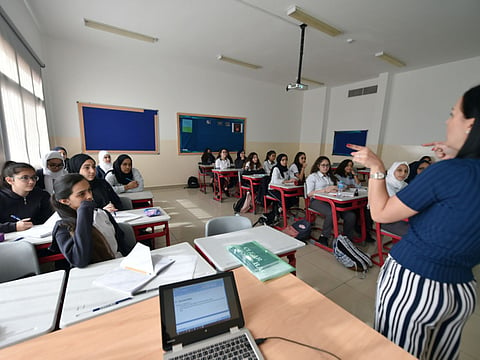Top marks for the cap on Dubai school fees
Limit on school fee hikes allows parents to plan for their children’s education

For every parent who has a child in school and for every family making their ends meet, there is some good news that shall relieve some of the financial pressure on their monthly balancing act. On Monday, the Dubai Executive Council reviewed an updated school fees framework from Knowledge and Human Development Authority (KHDA) and accepted a proposal that most schools will have their fees capped by no more than 2.07 per cent.
For parents, this cap is indeed welcome news. On any given monthly pay cheque, finding the money to pay for quarterly school fees is a burden that can be taxing. That fees often eats up a good proportion of parents’ combined or single incomes but it has to be paid for children to get the education and opportunities they deserve.
Our education system is effective and does provide a safe and secure process where the young receive quality learning regardless of the curriculum structure of courses they follow. The KHDA itself, through is annual inspections and quality assurance programmes is providing the framework for a schools’ system where standards are not simply maintained or ticking over, but are improved year upon year through regulatory checks and enforcing performance indicators.
The system, however, is not without its bugbears and, with the high element of for-profit organisations who are competing in the educational sector, the fees structure always faces upwards pressures. And in addition to these fees, there are ancillary costs such as school transport services or other administrative fees that are sometimes used to squeeze more money from parents.
By accepting the very reasonable suggested fee cap of 2.07 per cent, Dubai Executive Council is ensuring that there is much greater certainty in the school fees process for the next academic year. This allows parents and families to plan with certainty, allowing them to know well in advance what the school fees for 2019-2020 will be, and providing with advance knowledge to be able to save and raise those funds.
This is a process too that enhances transparency in a sector that has not been unduly criticised for the way it handled school funding in the past. This cap has been partly necessitated by those responsible for providing private education as viewing it purely as a money-raising venture. It’s not — it is but one model that provides the best learning environment for our children. And this cap goes a long way in meeting that crucial goal too.



